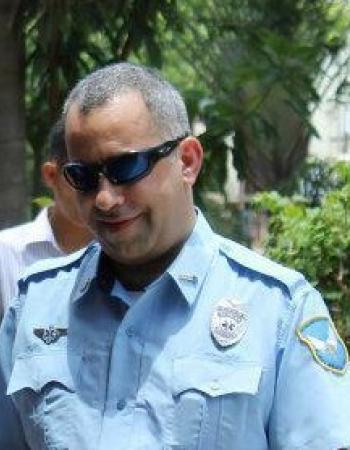Calls for more research and studies to assess training needs for Remote Healthcare in the Middle East
Najjar, Ahed Al . 2017
Around the world, the health status of people in remote areas is generally worse than in urban areas.
Rural and remote areas refers to those areas away of major cities stated by a number of different geographical categorizations. They are made up of many various settlements including countryside, farming, mining, rig sites, tourism and Aboriginal which have different social and economic determinants of health.
The Remote Healthcare Middle East 2017 conference in Abu Dhabi http://www.remotehealthcareme.com addressed the immense challenges for improving the health of people of rural and remote areas of the world. The conference considered developing regional perspectives, and focused on deliverable outcomes, the action plan proposes a range of regional and country-specific activities.
The conference program featured keynote presentations from Major universities, educational institution, corporate campiness, senior Military and civilian personnel delivering perspectives from this diverse and challenging region. These sessions with be complemented by cutting edge papers prepared by those at the forefront of remote healthcare development and those within the industry that are developing the next generation of remote healthcare technologies. In 2017, the conference addressed the challenges of remote medical practitioners working in trying circumstances.
The Conference held on 7-8 March, 2017 at the Westin Abu Dhabi. Remote Healthcare Middle East provided an exclusive platform to explore regional trends, explore preventative strategies, review the latest innovations and analyst best practice training solutions for healthcare in remote and extreme environments.
Remote healthcare defined as healthcare services for residents and workforce in remote areas, is essential to improve accessibility to health. Medical technologies and health consciousness have advanced, strategies to overcome the difficult circumstances imposed by remote living conditions have to be developed. Telemedicine and mobile health are two such strategies that are being increasingly employed with good measure within the city and remote locations.
Some strategies for change have been addressed during the conference to be implemented in all remote sites nationally and regionally. Some of those strategies based on CRANAplus report and the views of the National Rural Health Alliance to promote safety and security in remote locations.
WHO’s International Development Programme has highlighted the need to focus specifically on improving the health of people in rural and remote areas to improve basic health care. In the absence of facilities like counseling, support groups and other mental health services, there are significant levels of stress.
The presentation started with greeting the world for the international women's day and it was good timing to remind the remote health community of the early 2016, assaults on Remote Area Nurses (RAN) and the murder of RAN Gayle Woodford which sparked a groundswell of anger and distress within the health industry, professional organizations, the public, and political leaders.
The presntation came with recommendation in the need of developing remote healthcare Researches, the need for government involvement with private, to develop reliable mechanisms for recording workplace violence. (crime prevention act?), need for evaluation of violence prevention strategies since the current can predict 49%-6%, strategy to improve interagency cooperation needs with existing levels of cooperation national approach to the training, recruitment and skills assessment of all overseas-trained health professionals from undergraduate or postgraduate program and enhancing the Indigenous health workforce.
For more information about the healthcare professional courses, you can contact us on email: najjarahed@gmail.com web site: http://ahednajjar.com and http://www.remotehealthcareme.com
References
1.Increasing access to health workers in remote and rural areas through improved retention, ISBN 978 92 4 156401 4 (NLM classification: WA 390)
2.Outreach services as a strategy to increase access to health workers in remote and rural areas / Eric de Roodenbeke, ISBN 978 92 4 150151 4
3.Transforming Health Care in Remote Communities: report on an international conference T. Kue Young1*, Susan Chatwood2,3, James Ford4, Gwen Healey5,6, Michael Jong7,8, Josée Lavoie9 and Mason White10 From Transforming Health Care in Remote Communities Edmonton, Canada. 28-30 April 2016
4.Enhancing Health Services In Remote And Rural Communities Of British Columbia (November 1999)
5.Rural and Frontier EMS Agenda for the Future: A Service Chief’s Guide to Creating Community Support of Excellence in EMS HRSA contract # 250-03-0022, U.S. Department of Health and Human Services, Health Resources and Services Administration, Office of Rural Health Policy.
6.Transforming and scaling up health professional education and training: A survey of the views of civil society
7.Increasing access to health workers in remote and rural areas through improved retention, WHO
8.Transforming and scaling up health professionals’ education and training WORLD HEALTH ORGANIZATION GUIDELINES 2013
9. Remote-Health-Workforce-Safety-Security-Report-January-2017-5c4e6cc07ef30b87cf919ca42084a0a0-2
10.RDAA_draft_final_report_-_October_2012_20121018030356(1)
11. http://workingsafe.com.au
12. http://www.rdaa.com.au/sites/default/files/public/Violence%2520survey%2…

Around the world, the health status of people in remote areas is generally worse than in urban areas.

